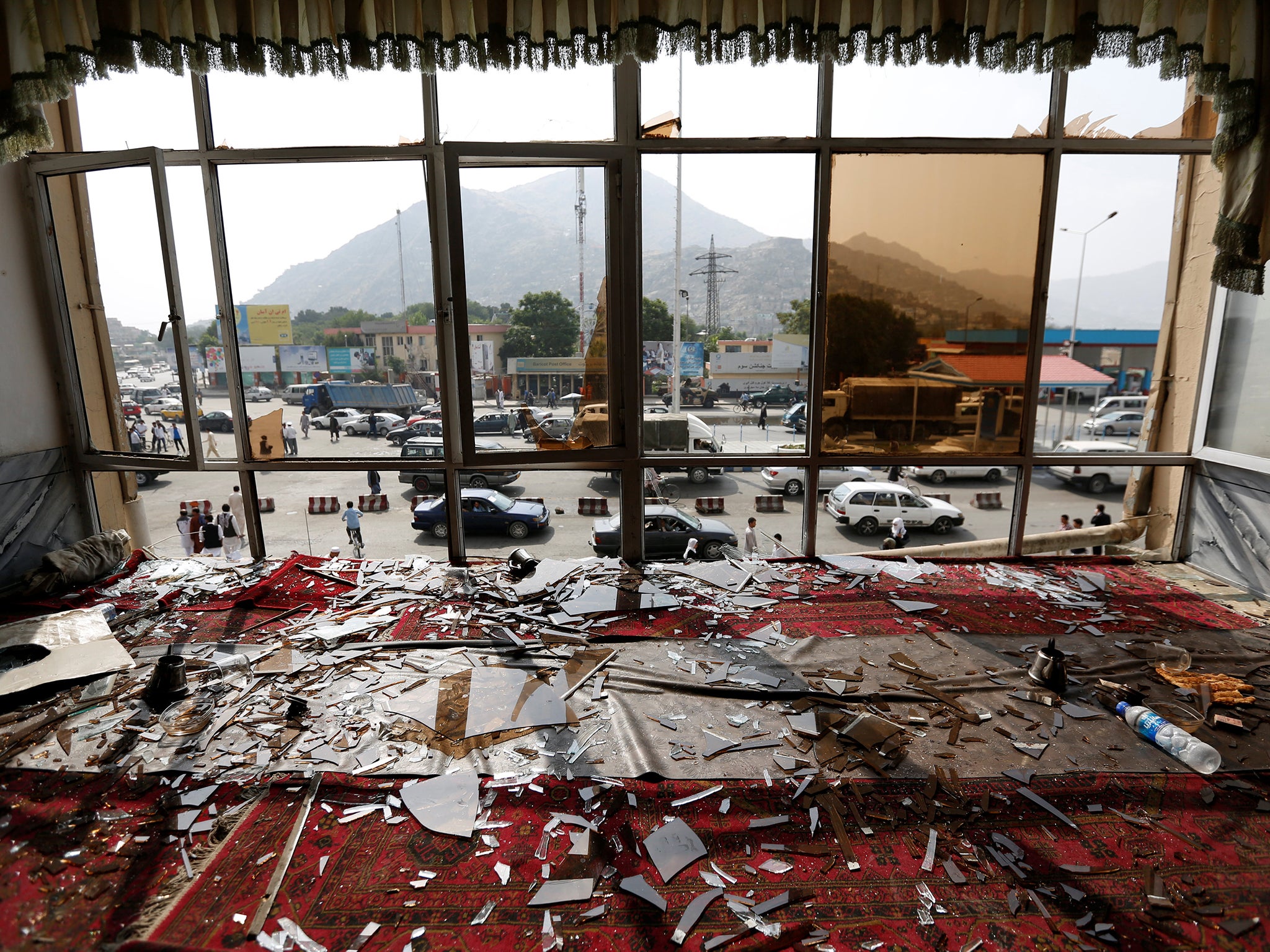The Independent's journalism is supported by our readers. When you purchase through links on our site, we may earn commission.
Isis is now waging a sectarian war in Afghanistan – and even the Taliban opposes it
Afghanistan’s 'long war' is entrenched and intractable, but unlike conflicts in Iraq, Syria, Yemen and Lebanon it has not been characterised by a Sunni/Shia divide – until now

Kabul set ablaze is a tragically familiar sight. But the killing of at least 80 Afghan Hazara at a protest in the capital last Saturday – the worst attack on the city for 15 years – is a considerable development for Afghanistan’s conflict, both because of its scale, and its intended target.
Isis’s claim of responsibility for the attack was explicitly sectarian, stating that it had sent two fighters with suicide belts to “a Shia gathering”. This stands in stark contrast to the rhetoric of the Taliban, by some distance the country’s most deadly insurgent force, which condemned the attack as an attempt “to divide the nation”, and a “plot to ignite civil war”.
Afghanistan’s “long war” is entrenched and intractable, but it is not (unlike conflicts in Iraq, Syria, Yemen, Lebanon, and to some extent Pakistan) characterised by a Sunni/Shia divide. If this bombing was indeed conducted by Isis, a force described as “defeated” by President Ashraf Ghani just four months ago, it likely indicates a conscious tactical shift towards exporting its sectarian methodology to a new theatre.

Isis and the Taliban encompass differing “models” of jihadism. While Isis claims to represent all Muslims in its global multi-fronted war against the ‘Shia-Zionist-Crusader alliance’, the Taliban’s focus is more local, seeking to establish an Islamic emirate within the borders of Afghanistan. To use a Trotskyite and Stalinist analogy, this is a distinction between jihad in one country versus global jihadism.
Isis’s Afghanistan faction is largely formed of hardliners who split from the Taliban movement to declare allegiance to Abu Bakr al-Baghdadi, opposing apparent overtures towards peace by the Taliban. For more than a year, the two groups have directly contested for the mantle of the leadership of the Afghan jihad, both militarily and in their propaganda.
These competing claims of legitimacy are framed in almost exclusively religious language. The Taliban, in its propaganda, emphasises the deep historical roots of its current conflict against the Afghan state, including the "jihad against the British empire, Russian invasion, and current jihad against the Americans" – an implicit attack on the relative youth of Isis as a movement.
Isis meanwhile claims the Taliban’s "circumambulating of graves" and "wearing of amulets" constitutes shirk (idolatry), and accuse the group of irja (in essence, not being restrictive enough in whom one defines as a Muslim, including Shia), an accusation it also levels at rival jihadi groups in Syria.
But although Afghanistan’s conflict has not been characterised by sectarian violence, the Hazara Shia minority which comprises 10-20 per cent of Afghanistan’s population has long felt that it faces systemic discrimination in the country. The march that was the target of Saturday’s bombing was protesting the alleged marginalisation of the group from the benefits of a major infrastructure project.
Since the slaughter of thousands of Hazara during the Taliban’s takeover of Afghanistan, where they were accused of loyalty to neighbouring Iran, the community has faced growing violence in recent years. In 2011, the killing of 63 worshippers on the Shia festival of Ashura, was claimed by sectarian Pakistani militant group Lashkar-e-Jhangvi, in addition to the Isis-claimed abduction and killing of seven Hazara at the end of 2015. Both caused more protests on the streets of Kabul, demanding better security from the government.
Saturday’s attack is an attempt to manipulate growing division and mistrust between Afghanistan’s Hazara community, and administration in Kabul, according to Rohullah Yacobi, associate fellow at the Human Security Centre. The tragedy of the bombing was compounded because “those protesting represented a different type of politics in Afghanistan. A civil movement, making use of activism and social media, they were marching for accountability, justice and freedom; all the values that Isis opposes.”
Isis’ apparent attempts to ‘sectarianise’ the Afghanistan conflict might be exacerbated by Tehran’s recruitment of thousands of Afghan Hazara, mainly taken from vulnerable migrant communities in Iran, to fight as part of a Shia “foreign legion” in support of Bashar al-Assad in Syria.
Afghanistan has remained largely resilient to the sectarianism that increasingly characterises conflict throughout the Middle East. Compared to the Taliban, the group has had little success in ingratiating itself within communities in the country. However, Isis has a global narrative, of Sunni versus Shia, of Islam versus the rest, and will likely continue pursuing sectarian attacks such as the one in Kabul until they achieve their ultimate goal of expanding their caliphate.
They have little to lose but much to gain in the war-torn country.
Milo Comerford is an analyst for the Centre on Religion & Geopolitics at the Tony Blair Faith Foundation
Join our commenting forum
Join thought-provoking conversations, follow other Independent readers and see their replies
Comments
Bookmark popover
Removed from bookmarks